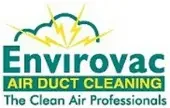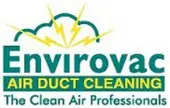Jacksonville is known for its warm, humid climate, which makes it a great place to enjoy the outdoors nearly year-round. However, the same climate that allows for lush greenery and a thriving ecosystem also means that airborne allergens are always present. Whether it’s pollen from trees and grass, dust mites, or mold spores, residents frequently struggle with allergy symptoms like sneezing, congestion, and itchy eyes.
While many people turn to over-the-counter medications for relief, one of the most effective and often overlooked ways to combat indoor allergens is by maintaining your HVAC system—especially by regularly changing your air filters. These filters play a crucial role in trapping airborne particles and keeping your indoor air clean. If they’re clogged or ineffective, allergens can circulate freely throughout your home, making allergy symptoms worse.
Let’s explore how changing your air filters can help you breathe easier and reduce allergy symptoms in your Jacksonville home.
Understanding Fall Allergies in Jacksonville
What Causes Fall Allergies?
While spring allergies tend to get the most attention, fall allergies can be just as problematic. Jacksonville’s mild fall temperatures mean that plants continue to release pollen well into the season. Some of the most common allergy triggers during this time include:
- Ragweed Pollen – Ragweed is one of the biggest culprits of fall allergies, and a single plant can release up to a billion pollen grains. These tiny particles can travel for miles in the wind, making them impossible to avoid.
- Mold Spores – Jacksonville’s humid climate creates the perfect environment for mold growth, especially in damp areas like basements, bathrooms, and even HVAC ducts. Mold spores become airborne and can easily be inhaled.
- Dust Mites – These microscopic creatures thrive in warm, humid environments and are a major indoor allergen. They accumulate in carpets, upholstery, and air ducts.
- Pet Dander – If you have pets, their dander (tiny skin flakes) can contribute to indoor allergies, especially in homes where air filters are not regularly replaced.
How Do Allergens Get Indoors?
Even if you keep your windows and doors closed, allergens can still make their way inside. They enter through:
- HVAC systems that pull in outdoor air
- Clothing and shoes worn outside
- Open doors and windows
- Pets that bring in pollen and dust from outdoors
Once inside, these allergens recirculate through your home’s air system, exacerbating allergy symptoms. This is why a high-quality, clean air filter is essential for maintaining good indoor air quality.
How Air Filters Help Reduce Allergy Symptoms
The Role of Air Filters in Your HVAC System
Air filters are the first line of defense against airborne contaminants. As air circulates through your HVAC system, filters trap dust, pollen, pet dander, and mold spores, preventing them from being recirculated throughout your home. A clean air filter can:
- Reduce airborne allergens and irritants
- Improve overall air quality
- Enhance HVAC efficiency
- Help prevent respiratory issues
What Happens When You Neglect Air Filter Changes?
If air filters are not changed regularly, they become clogged with dirt, dust, and allergens. This not only decreases their effectiveness but also forces your HVAC system to work harder, leading to:
- Increased energy costs
- Poor indoor air quality
- Greater strain on your HVAC system, leading to potential breakdowns
- More allergens circulating in your home, worsening allergy symptoms
According to the U.S. Environmental Protection Agency (EPA), indoor air can be 2 to 5 times more polluted than outdoor air due to trapped contaminants. A clogged air filter contributes to this problem by failing to capture allergens effectively.
How Often Should You Change Your Air Filters?
Factors That Affect Filter Lifespan
The frequency of air filter change-outs depends on several factors, including:
- Filter Type – Standard fiberglass filters typically need replacement every 30 days, while high-efficiency HEPA filters can last up to 6 months.
- Household Size – More people in the home mean more airborne particles, requiring more frequent filter changes.
- Pets – Homes with pets should have their filters changed every 30 to 60 days to remove pet dander and hair.
- Allergy Sufferers – If you or a family member has allergies, changing filters every 30 to 45 days can help keep symptoms under control.
- Climate and Pollution Levels – Jacksonville’s humid environment can contribute to faster buildup of mold and dust, requiring more frequent filter changes.
Best Air Filters for Allergy Relief
Not all air filters are created equal. If you suffer from allergies, consider upgrading to a filter with a higher Minimum Efficiency Reporting Value (MERV) rating.
- MERV 8–10 – Captures dust, pollen, and mold spores; suitable for general use.
- MERV 11–13 – Traps smaller particles, including pet dander and smoke; recommended for allergy sufferers.
- MERV 14–16 – Provides hospital-grade filtration; highly effective for removing allergens but may require HVAC modifications.
- HEPA Filters – Remove up to 99.97% of airborne particles; ideal for extreme allergy sufferers.
A professional HVAC technician can help you determine which filter is best for your system without restricting airflow.
Additional Ways to Improve Indoor Air Quality
While changing air filters is a crucial step in reducing allergens, combining this with other air quality improvements can provide even greater relief.
1. Duct Cleaning
Dust, mold, and pet dander can accumulate inside your air ducts over time. A professional duct cleaning service can remove these contaminants and prevent them from circulating throughout your home.
2. UV Light Installation
Installing ultraviolet (UV) lights inside your HVAC system can kill mold, bacteria, and viruses, preventing them from spreading. This is especially beneficial in humid climates like Jacksonville.
3. Whole-Home Dehumidifiers
Excess moisture in the air can promote mold growth and attract dust mites. A dehumidifier can maintain optimal humidity levels, reducing allergens in the home.
4. Regular HVAC Maintenance
Scheduling routine maintenance ensures that your HVAC system is clean and running efficiently. A professional technician can check for leaks, clean coils, and recommend air quality improvements.
For Indoor Air Quality Services in Jacksonville, FL, Contact Envirovac Air Duct Cleaning Today
If you’re struggling with fall allergies in Jacksonville, regular air filter changes can make a noticeable difference in your indoor air quality. However, maintaining a clean HVAC system involves more than just replacing filters—duct cleaning, UV light installation, and humidity control can all contribute to a healthier home environment.
At Envirovac Air Duct Cleaning, we specialize in improving indoor air quality for Jacksonville residents. Whether you need air filter change-outs, professional duct cleaning, or advanced air purification solutions, our experienced team is here to help.
Don’t let fall allergies take over your home—contact Envirovac Air Duct Cleaning today to schedule an air quality consultation and breathe easier this season!
 Skip to content
Skip to content



